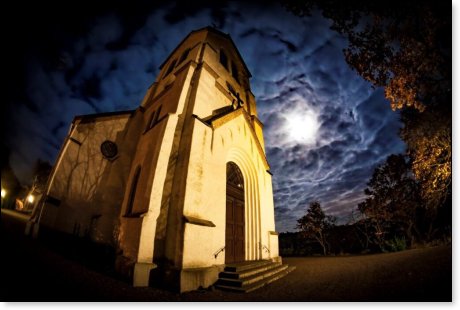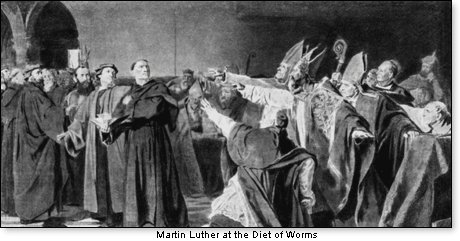
Rev. Mark H. Creech

John Phillips, in Exploring Revelation, tells a cute story about a little girl who was required to take her birth certificate to school but lost it on the way. The janitor saw her crying and asked her what was wrong. The child said with tears running down her face, “I’ve lost my excuse for being born.”
It seems that many churches today operate as though they’ve lost the justification for their birth. That was certainly the issue with the church in Sardis, to whom Jesus addressed his fifth letter in the book of Revelation (Rev. 3:1-6).
Jesus said the church at Sardis had a reputation for being “alive.” It definitely wasn’t lacking in activity. It was prominent in the community. They were seemingly a credit to their city, availing folks of various services, worship opportunities, and fellowship meetings. But Jesus charged that they were “dead,” which was the worst thing that could be said about them.
In The Revelation Record, Henry Morrissays of Sardis, “The church had once been known as a strong, Christ-honoring church. They still used the name of Christ and were outwardly a church of Christ, but the life was gone. Evidently, most of the members were professing Christians, but not truly regenerate, and thus only going through the motions of religion.”
Robert H. Mounce, in his commentary on The Book of Revelation, accuses the church at Sardis of becoming “secularized.” In other words, their worldview was more a reflection of their pagan culture than it was authentically Christian. Instead of transforming the world for Christ, they were transformed by the world. They had shifted their focus from pleasing God at all costs to doing whatever maintained their good position with the public. They had, said Jesus, lost their original motive for their existence and were now, in essence, spiritually “dead.”

Several years ago, it was my lot to be called to serve as pastor of a Sardis-like church. I would not want to give its name. Nevertheless, it became apparent over time that it was as spiritually dead as a Dodo bird.
One Sunday morning, after preaching a message about God’s plan of redemption, a man who had been a church member for more than thirty years came forward to receive Christ. As he took my hand at the altar, he said, “Mark, today was the first time I ever heard or understood the Gospel. I need to be saved.”
The experience of that man’s genuine conversion shook the entire church to its core. It also led me to question what kind of preaching the church had been accustomed to for so long that one of its longest-standing members would say he had never heard the message of salvation until that day. I could only wonder how many more in that fellowship were like him.
I would soon find out that there were several more when I discovered there had been a serious debate in one of our adult Sunday School classes about whether one could be sure of going to Heaven before one died. To my horror, the consensus of the class was it was impossible to have such assurance. That prompted me to ask the teacher if I might address the question before the whole class the following Sunday. She agreed, and I did. After sharing with the class, three ladies in their senior years actually trusted Christ for the first time and were, from thenceforth, sure of their eternal destiny in Christ.
During a Church Council meeting at this same church, I suggested a plan for community outreach with the Gospel. After presenting the strategy, one of the church’s most prominent and influential members said to me: “Young man, when are you going to learn that we want you to develop programs and plans that focus just on our current membership?” It was clear to me this member’s remarks were reflective of the church’s majority.
They were perfectly satisfied with maintaining mediocrity. Unfortunately, the church was little more than a religious country club with no passion for the spiritually lost, and no pursuit higher than improving its standing as the First Church of the Self-Righteous.
They were, I believe, as Jesus said to the church at Sardis, “dead.”
Someone has rightly said the church is not a museum for saints, but a hospital for sinners. That describes it well. Whenever Christianity has been supplanted with Churchianity, death has set in. Spiritual life is evidenced by changed lives and a hunger and thirst for God, his Word, and his ways.
How did Jesus counsel the “dead” church of Sardis?
He told them to wake up and be watchful! (v. 2) He commanded they strengthen whatever remained of the original spark that had nearly gone out (v.2). He admonished them to “remember” the true Gospel and his charge to make disciples of the nations. He said if they didn’t “repent,” he would come upon them “like a thief,” and in judgment (v.3). A dead church is worthy only of a sudden, unexpected, and inevitable burial.
The name Sardis means “a remnant.” Many scholars believe Sardis’ name not only speaks of a “remnant” of believers there who hadn’t “soiled their garments” (v. 4) by corrupt cultural amalgamation, but refers to a “remnant” of believers during the Reformation period (1517-1700), too.
Leading up to the Reformation, there were state churches where the country’s population were declared members of Christ’s church and kingdom, not based on spiritual conversion but on infant baptism.
But out of this darkness would come the light of the great Reformers such as Martin Luther, Ulrich Zwingli, and John Calvin. They broke away from Rome’s death grip, which, spiritually speaking, was the sad plight of vast congregations, baptized, taking the sacraments, etc., and yet primarily devoid of personal saving faith in the Lord Jesus Christ. They led the masses away from trusting in the church’s dead orthodoxy, formalities, and ceremonies to a living and personal relationship with the Savior by grace through faith alone – by the new birth through the Word and the Spirit.

Some say they didn’t go far enough. Still, this Reformation “remnant” directed much of the church to discard unbiblical traditions, restore biblical authority, and direct people to a saving knowledge of Christ.
In Lectures on Revelation, the late H.A. Ironside summarizes the lesson of Christ’s letter to the “dead” churches like Sardis. He writes:
There are thousands in Christendom who, though linked up with much that is unscriptural, and often almost undistinguishable from the masses, are yet plainly discernable to His [God’s] eye, for it is written, ‘The Lord knows them that are his.’ To these overcomers, the promise is made that they shall be clothed in white raiment, nor will their names be blotted out of the Book of Life when the thousands of names representing a Christless profession will be expunged from the records of those who profess to have life, in the day of manifestation.
Which will it be for you on “the day of manifestation?”
You may be a member of the church. You may have been confirmed. You may have been baptized. You may have attended church services regularly for many years. You may have participated in many good programs and ministries of the church.
Yet, you have never really felt the weight of your sins against God. You have never been seized by the conviction that you are unworthy of God’s love and worthy of his judgment. You have never run to the Cross of Christ for forgiveness and cleansing. You have never thrown yourself upon the mercy of God in the person of his Son, Jesus Christ. You have never trusted Christ personally to give you the free gift of eternal life. You have never experienced the change that results in your heart and way of thinking because you have never really surrendered to Christ, wanting him to turn your life around and enable you to persevere in doing his will.
No religious exercise of lesser or greater effort can substitute for meeting the living Christ by faith as your own Savior and Lord. As a means for a secure passage into a right relationship with God and a home in Heaven, anything else only results in death.
Your church should have clarified this for you if you are one of its members. If not, chances are you’re going to a Sardis-like church that has lost its “birth certificate.” It’s lost its verification of life and is “dead.”
“He who has an ear, let him hear what the Spirit says to the churches” (v.6).
© Rev. Mark H. CreechThe views expressed by RenewAmerica columnists are their own and do not necessarily reflect the position of RenewAmerica or its affiliates.




















